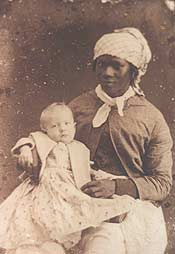
Thursday, February 24, 2011
Beloved

Friday, January 21, 2011
L'Étranger
This quote does not describe, in any way, The Stranger. For Camus and for Mersault, there is no searching for the truth, there is merely the truth - that human life is essentially meaningless, negated by death. It is a stagnant truth, a simple truth lacking the complexities
 of spirituality or the afterlife. Therefore, the search for truth, or for that matter, anything else, is not a validation for Mersault's existence. Unlike Razkolnikov, redemption, love, faith, or even salvation don't count as validations. For Mersault, the only validation for existence is, essentially, existence.
of spirituality or the afterlife. Therefore, the search for truth, or for that matter, anything else, is not a validation for Mersault's existence. Unlike Razkolnikov, redemption, love, faith, or even salvation don't count as validations. For Mersault, the only validation for existence is, essentially, existence.Mersault's truth:
"To lie is not only to say what isn't true. It is to say more than is true." - Preface, Camus
"My mind was always on what was coming next, today or tomorrow." - 100
"... the simplest and most lasting joys: the smells of summer, the part of town I loved, a certain evening sky, Marie's dresses and the way she laughed." - 104
"... there was nothing more important than an execution, and that when you come right down to it, it was the only thing a man could truly be interested in [.]" - 110
"But everybody knows life isn't worth living." - 114
"'I know that at one time or another you've wished for another life.' I said of course I had, but it didn't mean any more than wishing to be rich, to be able to swim faster, or to have a more nicely shaped mouth. It was all the same." - 119-120
What do these quotes tell me about Mersault? They tell me that just because life is meaningless doesn't mean a man can't be happy. They tell me that Mersault's knowledge of his own complete mortality does not lead to depression or even pessimism, it leads to simple joys and a largely happy life. Mersault refuses to tell "more than is true," which first and foremost means believing in a higher power, which he considers to be beyond the truth. In living with this knowledge, Mersault lives very much in the moment, unable to dwell in the past like many of the people around him. When he swims in the sea with Marie or drinks his coffee at Celeste's he is, in his own way, happy. He even admitted to his lawyer that he worries more about his physical existence than his emotions (65) which partially explains his reactions to his environment, especially the sun.
So why does Mersault start talking about the importance of seeing an execution? In my opinion, it is because he finally realizes, on the verge of his own execution, that maybe if he had known the ease with which his own life could end, he would have realized that as meaningless as life may be, it is still worth living. As he faces the imminence of death head on, he finds himself longing for twenty more years (114). He tries to tell himself that life "isn't worth living," but his heart still jumps at the thought of those extra years.
At the beginning of this novel, Mersault existed to exist. By the end, he realized that he could also exist to enjoy life. Unfortunately, by the time he has come to this realization, life is no longer an option.